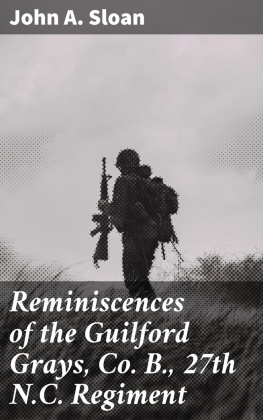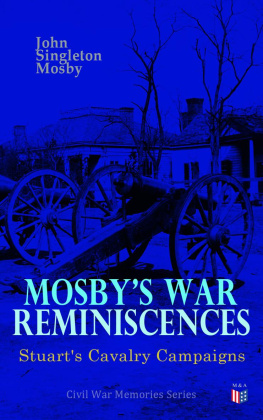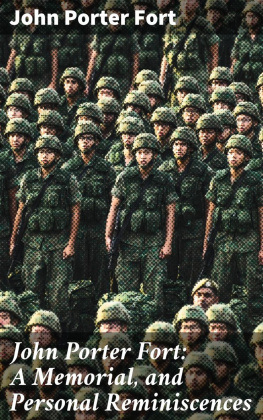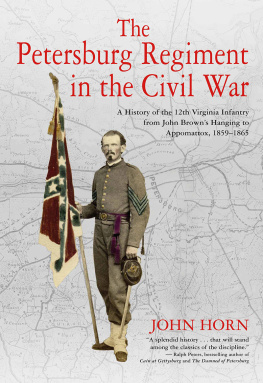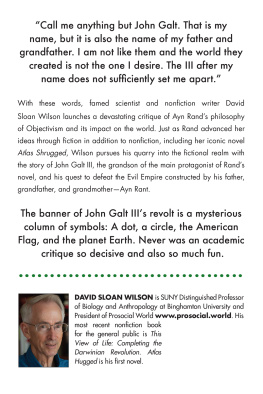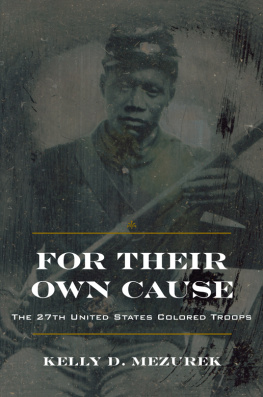I hope no one will think that I aspire to the severe dignity of a historian in these rambling reminiscences which are to follow. I am well content to take an humbler part. With the political questions of the past, with the conduct of politicians and statesmen, with the skill of military leaders, with the criticism of campaigns, with the causes and effects of the civil war, I have here no concern, much less with the personal interests and rivalries of individuals. But for all this, the writer hopes that these contributions will not be unfavorably received by those who were actors in the scenes which are here recalled. He hopes that what is lacking of the general history of those eventful times will be compensated for in the details touching the history of the Guilford Grays themselves.
From the period when our company was called into the field by Gov. Ellis, down to the surrender at Appomattox, the writer kept a record of those events which came under his own observation, and which he thought might prove useful and interesting in future time. "Forsan et haec olim meminisse juvabit."
These records up to the capture of Newberne were lost, and for this period of our history I have relied principally upon my memory. From the battle of Newberne to the final catastrophe, I have accurate notes of the most important events and incidents in which the Grays participated and shared.
To the memory of my comrades who fell, and as a testimonial to those who survive, these reminiscences are dedicated. To the derelict in duty, if such there may have been, the writer will have naught to say. Let their names stand forever in the shadows of oblivion.
JOHN A. SLOAN.
REMINISCENCES OF THE GUILFORD GRAYS.
CHAPTER I.
Table of Contents
In the year eighteen hundred and sixty the military spirit was rife in the South. The clouds were threatening. No one knew what a day would bring forth. The organization, the equipment and drill of volunteer companies was, accordingly, the order of the times. The first assembly to perfect the organization of the Guilford Grays was held in the court-house in Greensboro, N.C., on the evening of the 9th of January, 1860. The meeting was presided over by General Joab Hiattnow deceaseda favorite and friend of the young men. Gen. Hiatt won his military laurels as commander of the militia, in the piping times of peace. Whoever has seen him arrayed in the gorgeous uniform of a militia brigadier on the field of the general muster cannot fail to recall his commanding presence. He was the proper man to fill the chair at our first meeting. James W. Albright (who is still in the flesh) acted as secretary. The usual committees were appointed. A constitution and by-laws were drafted and adopted. The constitution provided for a volunteer company of infantry, to be known as the Guilford Grays. Each member was required to sign the constitution and by-laws. The following is a complete list of the signers, in the order of their signatures:
John A. Sloan, William P. Wilson, Thomas J. Sloan, Jos. M. Morehead, John Sloan, David Gundling, Henry C. Gorrel, William U. Steiner, Otto Huber, James R. Pearce, Jas. T. Morehead, Jr., P. B. Taylor, Chas. A. Campbell, J. H. Tarpley, William Adams, James W. Albright, Maben Lamb, James Thomas, Edward G. Sterling, Jos. H. Fetzer, William P. Moring, Wilbur F. Owen, George H. Gregory, David N. Kirkpatrick, Andrew D. Lindsay, John Donnell, Benjamin G. Graham, W. W. Causey, William L. Bryan, Chas. E. Porter, John D. Smith, James R. Cole, John H. McKnight, Jed. H. Lindsay, Jr., W. C. Bourne, John A. Gilmer, Jr., Samuel B. Jordan.
The foregoing persons signed the constitution and by-laws on the 9th of January, 1860, when the company was first organized, and are entitled to the honor of being the "original panel."
The company was organized by the election of the following commissioned and non-commissioned officers, viz.:
John Sloan, Captain; William Adams, 1st Lieutenant; James T. Morehead, 2d Lieutenant; John A. Pritchett, 3d Lieutenant; Henry C. Gorrell, Ensign (with rank of Lieutenant); W. C. Bourne, Orderly Sergeant; William P. Wilson, 2d Sergeant; Samuel B. Jordan, 3d Sergeant; Geo. W. Howlett, 4th Sergeant; Thos. J. Sloan, Corporal; Benjamin G. Graham, 2d Corporal; George H. Gregory, 3d Corporal; Silas C. Dodson, 4th Corporal.
The following musicians were selected from the colored troops:
Jake Mebane, fifer; Bob Hargrove, kettle-drummer; Csar Lindsay, base-drummer.
The anniversary of the battle of Guilford Court-House is an honored day among the people of old Guilford. It was the turning point in the future of Lord Cornwallis. When the Earl of Chatham heard the defeat announced in the House of Parliament, he exclaimed: "One more such victory would ruin the British." This battle was fought by General Greene on the 15th of March, 1781. On this anniversary, the 15th of March, 1860, our officers received their commissions from Governor Ellis. This is the date of our formal organization.
Friday night of each week was set apart for the purpose of drill and improvement. Our drill-room was in the second story of Tate's old cotton factory, where we were instructed in the various manuvers and evolutions, as then laid down in Scott's tactics.
Early in April we received our arms, consisting of fifty stand of old flint-and-steel, smooth-bore muskets, a species of ordnance very effective at the breech. They were supposed to have descended from 1776, and to have been wrested by order of the Governor from the worms and rust of the Arsenal at Fayettsville. By the first of May we had received our handsome gray uniforms from Philadelphia. These uniforms, which we so gaily donned and proudly wore, consisted of a frock coat, single-breasted, with two rows of State buttons, pants to match, with black stripe, waist belt of black leather, cross belt of white webbing, gray cap with pompon.
Our first public parade was a day long to be remembered. It occurred on the 5th day of May, 1860. The occasion was the coronation of a May queen in the grove at Edgeworth Female Seminary. The Grays were invited by the ladies to lend their presence at the celebration, and it was whispered that we were to be the recipients of a banner.
It will be readily imagined that we were transported with the anticipation of so joyous a day. We did our best to make ourselves perfect in the drill and manualfor would not all eyes be upon us? The day came at last, and at 10 a.m. we assembled in front of the court-house. The roll was called and no absentees noted. The uniforms were immaculate, our officers wore the beautiful swords presented to them by the fair ladies of Greensboro Female College, the musket barrels and bayonets flashed and gleamed in the glorious May sunshine, and with high heads in jaunty caps, and with the proud military step, as we supposed it ought to be, we marched now in single file, and now in platoons, down the street towards the Edgeworth grounds, keeping time to the music of "Old Jake," whose "spirit-stirring fife" never sounded shriller, and whose rainbow-arched legs never bore him with such grandeur.
When we arrived at our destination, we found the beautiful green grounds, which were tastefully decorated, already filled with happy spectators. The young ladies, whose guests we were to be, were formed in procession, and were awaiting the arrival of the Queen and her suite. The appearance of this distinguished cortege on the scene was the signal for the procession to move.



